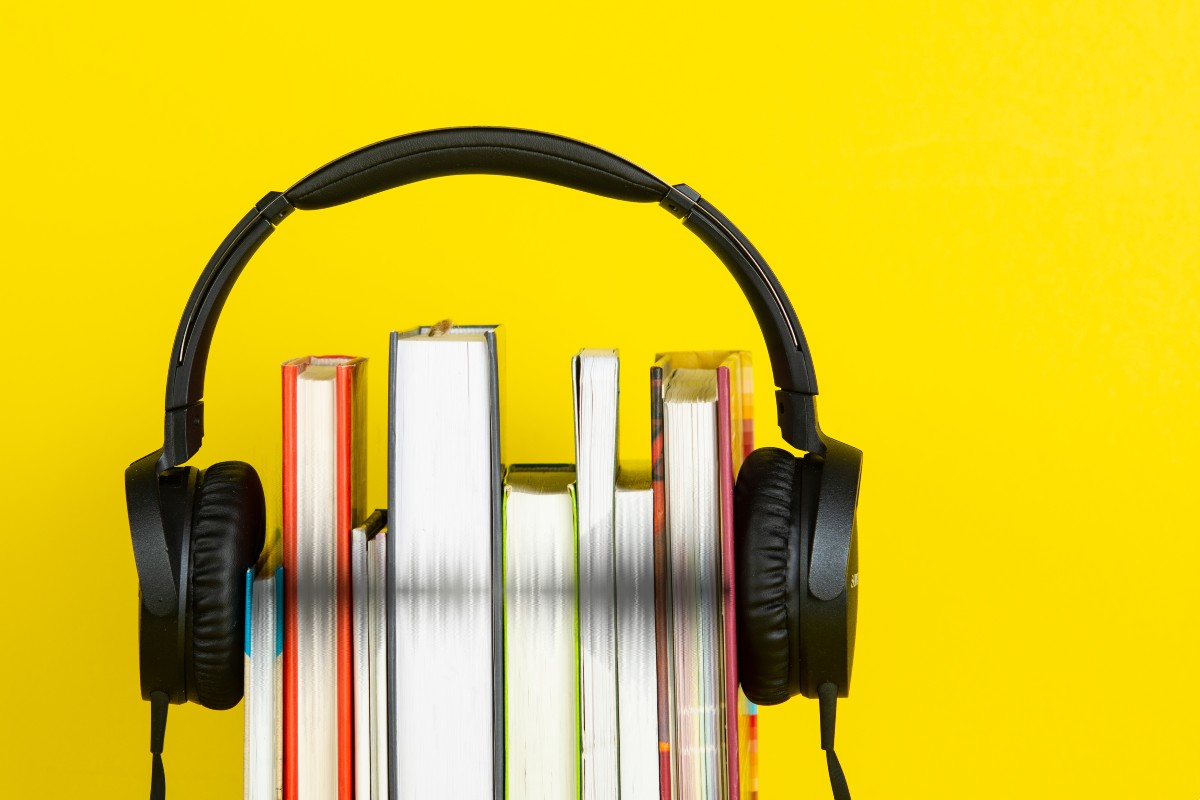by Faye D. Fischer
You may have heard that the Utah State Library for the Blind offers a variety of specialized services to blind and print disabled patrons in several states. We provide braille material and talking book library services to patrons from the east to west coast at no charge. But do you know that we also record our own audio books? Tucked away in the back corner of the library, behind an unassuming office door, we have a state-of-the art recording studio. Our studio has eight recording bays and is also equipped to record podcasts. The library narration program has two divisions; volunteers who come to our facility to read, and an employment/rehabilitation program at the Utah State Prison with more than 20 employees who narrate and edit the majority of our content.
I spoke to Jason Powers, the audio recording manager, who had a lot to say about the program and the significant post-pandemic strides that are being made. “You may wonder ‘How does USL choose which books are narrated?’ and that is my favorite question to answer. We are assigned a reading list from the National Library Service for most of our titles, but a lot of the time the priority books are being read because a patron here or in one of the other four full service states (Utah, Wyoming, Alaska, and Montana), called in and asked for it specifically. On site as well as offsite the principle is always the same: We are reading with a purpose.”
We focus on recording local authors, local topics of interest, and patron requests which assures that we are recording books that would otherwise be inaccessible to our patrons. Interested in learning what types of titles we record? Check out the Off the Shelf blog for monthly lists of new audio titles.
How do we do it?
All of this is legally possible because of an amendment to the U.S. Copyright Act that lifts some of the limits of exclusive copyrights in efforts to make print material accessible. In addition, the Marrakesh Treaty (largely based on U.S. laws) was signed in 2013 at a meeting of the World Intellectual Property Organization and officially adopted by the United States in 2019. The treaty assures that “copyright restrictions will not impede the creation and distribution of copies of published works in special formats accessible to [print disabled] individuals,” and creates the possibility for global access and sharing of materials. The Utah State Library for the Blind uses proprietary software to make as many titles available as possible.
Who qualifies for audio books?
You might also be surprised at the wide definition of a print disability; it is more than just blindness or low vision. It includes learning disabilities, such as dyslexia or dysgraphia, and physical disabilities, such as the inability to hold a book, that prevent someone from reading conventional print. Anyone with a print disability qualifies for services from the Utah State Library for the Blind.
Why should you refer a patron to the Utah State Library for the Blind? How is the service we offer different from the service they could get at their local library?
- Every patron receives their own audio book reading device free of charge. It is portable, rechargeable, and easy to use.
- Patrons do not have to wait for audio books. Our audio books are duplicated on demand and loaded on USB cartridges that are sent directly to the patron’s home through the USPS at no charge.
- Patrons have access to thousands of audio books that are not available in local libraries. They are given access to the National Library Service’s extensive collection of audio titles, the NLS BARD app (provides downloadable braille and audio files), and all of our local recordings.
- Patrons receive dedicated customer service. They can call our reader’s advisors to request new titles and receive recommendations, or build up their queue in our online request system. They could even join our book club!
You can access the application here. The application can be downloaded, printed, and submitted by mail, fax, or email. The application does require professional verification of disability status. Many different types of professionals can verify and in most cases verification can be made by a professional librarian with an MLS. More detailed instructions are available here. School librarians, your students also qualify for our services! Their applications can be signed by school counselors, or social workers.
If you have any questions about the application process or the services we offer please contact Lisa Nelson. lfnelson@utah.gov.
If you are interested in volunteering as a narrator/reader contact Jason Powers. jtpowers@utah.gov. We are especially in need of volunteers who can read and or edit in other languages.
If you want to learn more about the National Library Service for the Blind and Print Disabled at the Library of Congress click here.
The Chafee Amendment: 17 U.S.C. 121 & 121A – national library service for the Blind and print disabled
(NLS): Library of Congress. National Library Service for the Blind and Print Disabled (NLS) | Library
Of Congress. (2021, February 16). https://www.loc.gov/nls/about/organization/laws-regulations/copyright-law-amendment-1996-pl-104-197/
Marrakesh Treaty – National Library Service for the Blind and print disabled (NLS): Library of Congress.
National Library Service for the Blind and Print Disabled (NLS) | Library of Congress. (2021, September
29). from https://www.loc.gov/nls/about/organization/laws-regulations/marrakesh-treaty/

